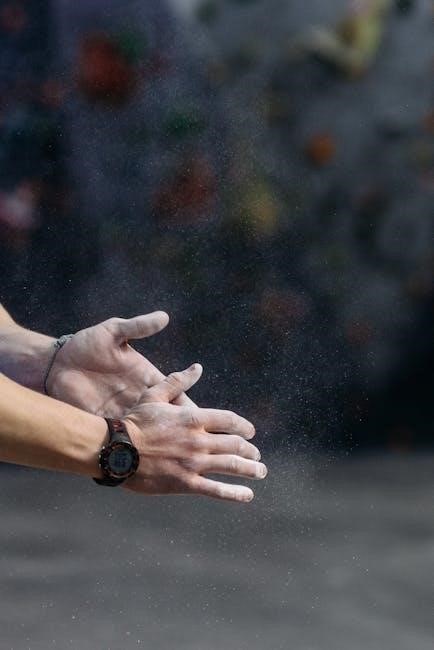
Fernanda Gallo’s philosophy explores the intersection of identity, unity, and cultural dialogue, offering insights into Europe’s future amidst globalization and political challenges, emphasizing ethical frameworks for collective growth.
1.1. Overview of Fernanda Gallo’s Work
Fernanda Gallo is a contemporary philosopher whose work bridges philosophy, European studies, and cultural analysis. Her scholarship focuses on identity, unity, and ethical frameworks within Europe’s evolving landscape. By integrating historical and contemporary perspectives, Gallo’s work provides a comprehensive understanding of philosophical principles shaping Europe’s future, emphasizing the importance of dialogue and collective growth in addressing complex challenges.
1.2. The Intersection of Philosophy and European Studies
Fernanda Gallo’s work uniquely merges philosophical inquiry with European studies, exploring how philosophical thought shapes political, cultural, and social frameworks. By analyzing historical and contemporary European challenges, her scholarship provides ethical and intellectual foundations for addressing identity, integration, and future governance, emphasizing the role of philosophy in guiding Europe’s evolution.
Key Themes in “Philosophy and the Future of Europe”
Fernanda Gallo’s work examines European identity, unity, and cultural dialogue, emphasizing philosophy’s role in addressing contemporary challenges and fostering ethical frameworks for a cohesive, diverse Europe.
2.1. The Concept of European Identity
Fernanda Gallo’s philosophy delves into European identity as a multifaceted concept, emphasizing unity in diversity. She explores how shared values, historical experiences, and cultural heritage shape Europe’s collective identity, while addressing challenges like political fragmentation and globalization. Gallo argues that a strong, inclusive European identity is essential for navigating contemporary crises and fostering cohesion among diverse nations and cultures, ensuring a unified future.
2.2. The Role of Philosophy in Shaping Europe’s Future
Fernanda Gallo underscores philosophy’s role in shaping Europe’s future by providing ethical frameworks and critical thinking. She advocates for philosophical inquiry to address migration, unity, and policy-making, ensuring ethical decision-making. By fostering dialogue and reflection, philosophy becomes a tool for navigating Europe’s challenges, promoting unity, and envisioning a future rooted in shared values and collective responsibility.
Historical Context and Philosophical Foundations
Fernanda Gallo’s work draws on Europe’s rich philosophical heritage, blending migration-related issues, cultural dynamics, and critical analysis to forge a modern vision of unity and ethical governance.
3.1. Influences from European Philosophical Traditions
Fernanda Gallo’s philosophy is deeply rooted in European traditions, drawing from existentialism, phenomenology, and critical theory. She integrates these frameworks to explore identity, migration, and unity, emphasizing how historical thought shapes contemporary discourse on Europe’s future, particularly in addressing globalization and cultural diversity through ethical and philosophical lenses.
3.2. Historical Challenges and Their Impact on European Thought
Europe’s history of wars, colonialism, and economic crises has shaped its philosophical discourse, emphasizing unity and identity. Fernanda Gallo’s work reflects on these challenges, highlighting how they have influenced contemporary thought on migration, globalization, and political integration, while advocating for ethical frameworks to address these issues and foster a cohesive European society.
The Future of Europe: Challenges and Opportunities
Europe faces challenges like political instability and economic pressures but also opportunities in cultural exchange, technological innovation, and philosophical dialogue, fostering resilience and unity for a cohesive future.
4.1. Political and Economic Challenges Facing Europe
Europe grapples with political instability, migration pressures, and economic disparities, while philosophical inquiry into identity and unity offers ethical frameworks for addressing these challenges, fostering cohesive and sustainable progress.
4.2. The Role of Philosophy in Addressing Contemporary Issues
Philosophy provides ethical frameworks and critical thinking to tackle Europe’s challenges, such as migration and economic policies. By fostering dialogue and reflection, it encourages innovative solutions, promoting unity and resilience in addressing complex, interconnected issues facing the continent.
Fernanda Gallo’s Vision for a Unified Europe
Fernanda Gallo envisions a unified Europe rooted in philosophical dialogue, emphasizing unity in diversity and ethical frameworks to address contemporary challenges, fostering resilience and collective progress.
5.1. The Idea of Unity in Diversity
Fernanda Gallo’s philosophy underscores the concept of unity in diversity, advocating for a harmonious coexistence of diverse cultures and philosophies within Europe. This idea addresses the challenges of globalization and shifting identities, promoting a balanced approach to cultural integration while respecting individual heritage. By fostering dialogue and mutual understanding, Gallo’s vision aims to strengthen Europe’s resilience and collective progress in an increasingly interconnected world.
5.2. The Importance of Cultural and Philosophical Dialogue
Fernanda Gallo emphasizes the vital role of cultural and philosophical dialogue in fostering mutual understanding and addressing Europe’s challenges. By encouraging open exchange, dialogue bridges diverse perspectives, promoting unity while preserving cultural richness. This approach navigates globalization’s complexities, ensuring Europe’s identity remains resilient and inclusive, aligning with Gallo’s vision of a harmonious, diverse future.

The Impact of Globalization on European Philosophy
Globalization reshapes European philosophy by challenging traditional identity constructs and fostering cross-cultural exchange, prompting scholars to rethink Europe’s role in a interconnected, diverse world.
6.1. Globalization and Its Effects on European Identity
Globalization challenges European identity by blurring cultural and national boundaries, fostering diversity, and prompting questions about unity. Migration and cross-cultural exchange reshape traditional notions of identity, creating a dynamic tension between homogenization and the preservation of unique cultural traits. This shift necessitates dialogue to reconcile global interconnectedness with Europe’s historical and philosophical foundations, ensuring a cohesive yet inclusive identity emerges.
6.2. The Role of Philosophy in a Globalized World
Philosophy plays a crucial role in navigating globalization’s complexities by fostering critical thinking and ethical frameworks. It encourages dialogue across cultures, helping societies address identity, justice, and unity. Through philosophical inquiry, global challenges like inequality and environmental degradation are examined, promoting inclusive solutions. Philosophy’s reflective nature equips individuals to engage meaningfully with diversity, ensuring a balanced approach to progress and tradition in a interconnected world.

Ethical and Moral Considerations
Fernanda Gallo’s philosophy integrates moral inquiry into European policies, emphasizing ethical responsibility and justice. Her work connects these principles to unity and future challenges.
7.1. Ethical Dimensions of European Policy-Making
Fernanda Gallo highlights the moral principles guiding European policy-making, emphasizing justice, equity, and transparency. Her philosophy underscores the need for ethical frameworks to address diversity and unity, ensuring policies reflect shared values and promote collective well-being amid global challenges;
7.2. The Role of Morality in Shaping Europe’s Future
Fernanda Gallo underscores morality’s pivotal role in shaping Europe’s future, advocating for ethical decision-making and societal cohesion. She argues that shared moral values are essential for navigating challenges like globalization and cultural shifts. Gallo emphasizes the importance of moral education and leadership in fostering a unified, equitable Europe, ensuring sustainable progress and collective well-being.

Critiques and Counterarguments
Critics argue Fernanda Gallo’s vision may overlook practical implementation challenges, while counterarguments highlight the need for balancing philosophical ideals with realistic policy-making and societal transformation strategies.
8.1. Critiques of Fernanda Gallo’s Vision for Europe
Critics argue that Fernanda Gallo’s vision for Europe may be overly idealistic, lacking practical implementation strategies. Some suggest her emphasis on unity risks overlooking Europe’s diverse cultural and political landscapes, potentially marginalizing smaller nations or regional identities. Additionally, critics highlight the need for more concrete policy frameworks to address economic and social inequalities, which Gallo’s philosophical approach may not sufficiently prioritize.
8.2. Alternative Perspectives on Europe’s Future
Alternative perspectives emphasize the need for a more decentralized Europe, prioritizing regional autonomy over centralized policies. Some argue for pragmatic approaches to migration and economic integration, while others advocate for stronger national identities within a loose confederation. These viewpoints challenge Gallo’s unified vision, suggesting diversity and practicality should guide Europe’s future, rather than idealized philosophical frameworks.
Fernanda Gallo’s philosophy underscores the importance of ethical dialogue and unity in shaping Europe’s future. Her work highlights the need for philosophical reflection to address contemporary challenges and foster a cohesive, diverse society, emphasizing the enduring relevance of philosophy in navigating global complexities and cultural exchanges.
9.1. Summary of Key Points
Fernanda Gallo’s philosophy emphasizes the importance of European identity, unity in diversity, and the role of philosophy in addressing contemporary challenges. Her work highlights ethical frameworks for policy-making, cultural dialogue, and the impact of globalization on European thought. By integrating philosophical traditions with modern issues, Gallo provides a visionary approach to fostering a cohesive and morally grounded future for Europe, balancing diversity with collective purpose.
9.2. The Enduring Relevance of Philosophy in Europe’s Future
Philosophy remains vital in shaping Europe’s future by providing critical reflection, ethical inquiry, and cultural dialogue. It addresses globalization’s impact, fostering unity amid diversity and guiding moral decision-making. Gallo’s work underscores philosophy’s role in navigating contemporary challenges, ensuring Europe’s resilience and harmony through thoughtful, values-driven approaches to globalization, identity, and collective progress.

References and Further Reading
Key sources include Fernanda Gallo’s “Philosophy and the Future of Europe,” foundational texts on European philosophy, and scholarly articles on globalization and cultural identity.
10.1. Key Sources and Influences
Fernanda Gallo’s work is informed by influential philosophical texts, including her own “Philosophy and the Future of Europe.” Additional sources include studies on European identity, globalization, and ethical policy-making, alongside scholarly articles from publishers like Frontiers, which explore cultural and political challenges. These texts provide a comprehensive framework for understanding her vision and its relevance to contemporary Europe.
10.2. Recommended Reading for Deeper Understanding
- Fernanda Gallo’s “Philosophy and the Future of Europe” is essential for understanding her core ideas.
- Complement with studies on European identity, globalization, and ethical policy-making from scholarly publishers like Frontiers.
- Explore the Council of Europe’s work on migration and cultural dialogue for broader context.
- Refer to theses on literacy and education to grasp the role of cultural frameworks in unity.